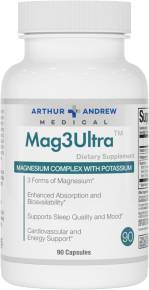People seem to understand little about the workings and overall purpose of the human body’s metabolism. I was one of them.
For instance, my metabolism was the first thing I blamed for weight gain.
As my once-athletic physique sunk into a misshapen form of fat over the past few years, I’d been quick to fault aging and a slowing metabolism, even as I had a second helping of pasta and later hit the snooze bar on my alarm and skipped morning exercise.
Well, I’ve learned my lesson.
Is Metabolism the Cause of Weight Gain?
Research reveals that you can’t entirely blame a slowing metabolism for weight gain.
Indeed, while a slow metabolism burns fewer calories than a fast-paced one, it is physical inactivity and poor diet that contribute the most to weight gain.
The Role of Your Metabolism
Still, metabolism plays a big role in overall health and is something you want running like a finely tuned sports car, and not a sluggish truck. It is, in many ways, an engine.
What Does Your Metabolism Do?
Metabolism is essentially the summary of all the chemical processes that take the calories from foods and beverages and combine them with oxygen, creating energy.
Energy powers breathing, blood circulation, cell growth and repair, and many other necessary functions.
What Can Effect Metabolism?
Several factors shape the pace of a metabolism.
-
Body Mass
First, larger people and those with more muscle have fast metabolisms and burn more calories. Genetics decidedly plays a role here.
And—sorry, women—men tend to have faster metabolisms because they usually have more muscle and less body fat. (Of course, this doesn’t apply to all women.)
-
Medication
Medication can slow, as well as quicken, metabolisms. Lastly, as people age, muscle typically decreases and fat starts appearing in unlikely places, like weeds in a garden.
Kick Start Your Metabolism!
Again, as metabolism slows, fewer calories burn. But as health experts point out, a slowing metabolism has only a small effect on weight gain. Overweight people have been shown to have faster metabolisms because they need more energy.
Still, it doesn’t hurt to increase your metabolism. It will increase energy output and make you feel better. It will also contribute somewhat—although not entirely—to weight loss. Who doesn’t want that?
There are several easy ways to kick-start metabolism.
-
Motivate Your Metabolism with Movement
The more you move, the more your metabolism keeps going. Go for walks, long hikes, runs, swims—anything active. If your body can handle it, high-intensity training can keep a metabolism moving fast for as much as a day. If you’re walking or jogging, simply quicken the pace for a minute and then resume the regular pace, repeating the cycle for at least 12 minutes.
-
Strength Training to Burn More Calories
Strength training increases muscle mass, which, in turn, burns more calories than fat tissue does. As people age, it’s vital to slow the pace of muscle loss; weight lifting at least twice a week keeps muscles firm. You’ll also get your metabolism moving from the cardio involved in weight workouts.
-
Burn Fat & Calories by Drinking Green Tea
A compound known as epigallocatechin gallate might increase calorie and fat burning. In fact, consuming about 250 milligrams of it might quicken the metabolism enough to burn 100 calories a day, studies have shown. Fortunately, epigallocatechin gallate is easy to find: It’s in green tea. Drink up!
-
Sleep Better to Keep Your Metabolism Moving!
Sleep deprivation hurts in many ways, not the least in that it slows metabolism. For many, it’s easier said than done, but a consistent schedule of sleeping seven to eight hours a night will keep the body fresh and the metabolism moving.





